Center for Asia Pacific Studies
The Center is San Francisco’s academic gateway to the Asia Pacific, fostering and promoting innovative research, teaching and public programs.
Asia Pacific Perspectives (ISSN: 2167-1699) is an international, peer-reviewed electronic journal that promotes cross-cultural understanding, tolerance, and the dissemination of knowledge about the Asia Pacific. The editors welcome submissions from all fields of the social sciences and the humanities that focus on the Asia Pacific, especially those adopting a comparative, interdisciplinary approach to issues of interrelatedness in the region. The journal facilitates academic discussions among both established scholars in the field and advanced graduate students. APP is published twice each year by the University of San Francisco Center for Asia Pacific Studies.
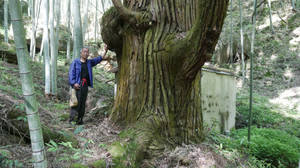
Fengshui, a composite of cosmological beliefs and landscape management strategies, includes the protection of sacred groves in rural China. In tandem with other adaptive features, village fengshui forests promote social-ecological vigor by conserving plant, soil, and water resources, enhancing social memory, and serving as living models of resilience in the face of social, economic, and political changes. But how have they stood up to several decades of suppression of fengshui as “superstition,” and deforestation propelled by state-led agricultural systems?
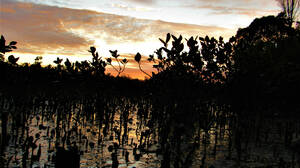
How will climate change impact the low-lying Philippine islands, and what consequences will these changes have on Filipino industry? As climate change impacts public health, how will its intersection with the economy play out in Philippine communities? This article will explore the current political, environmental, and economic state of the Philippines to understand the impacts of industries and climate change on local communities.
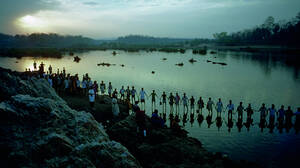
Across the world, "ordinary" people are coming up with extraordinary responses to the deepening ecological crisis facing humanity. Whether in the form of resistance or of response, people are finding creative alternatives to the dominant ideology of ‘development.’ India’s “eco-swaraj” movement is just such an alternative, playing out across hundreds of initiatives in local Indian communities, and linking to similar approaches arising in other global contexts.
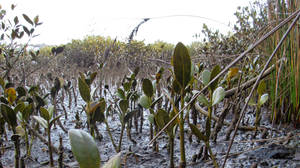
Despite the great natural bounty possessed by the Philippines, the island nation’s environment is at grave risk from pollution, depletion and climate change impacts. How might localized spiritual appeals curb the environmental destruction?
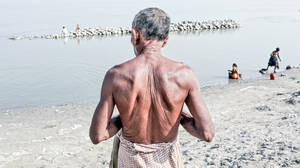
The people of coastal Bangladesh are greatly impacted by the effects of climate change, with many riverine villages disrupted or destroyed by temperature change, flooding and erosion. As major rivers like Padma, Jamuna, Meghna, Brahmaputra and other rivers along the coast erode massively, the ‘waves’ – whether present or absent – destroy hope, taking away precious land and livelihoods, leaving nothing but parched, cracked river-beds.
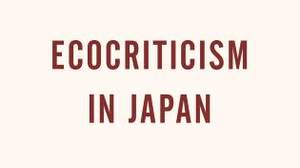
Viewed through the lens of traditional Japanese poetry and artwork, Japan is a place of beautiful yet fleeting cherry blossoms and waves so fearsome they are known world-wide by their native name of tsunami. From the onset of Western industrialization and world wars, Japan has also become known for man-made disasters inflicted on nature and society, and these disasters figure prominently in modern Japanese literature and film. This new book explores Japanese literature and film through the themes of environmental crisis, harmony with nature (or lack thereof), and the ‘slow’ injustice of long-term environmental damage.